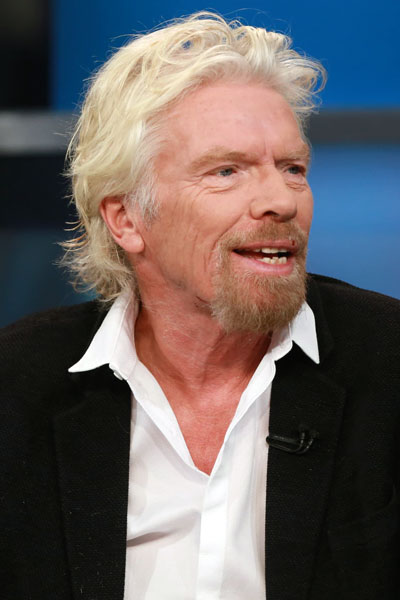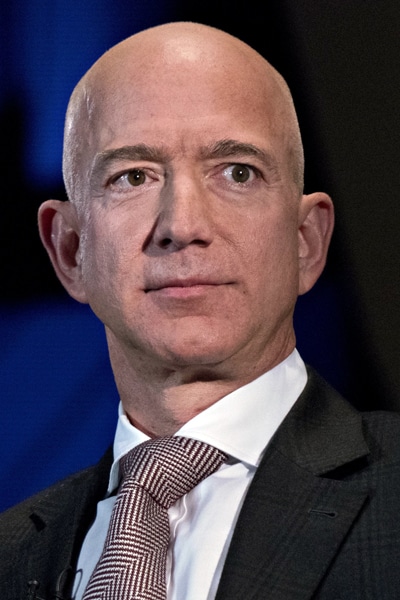During the height of the space age, men and women dreamed of traversing the universe, but for many decades afterwards it remained only a dream due to high costs and limited opportunities.
Since the first flight on April 12, 1961, there have been numerous high profile entrepreneurs who have wanted to explore space travel. Today, in the ever-expanding world of private jet trips, three pioneers are competing to be the premiere space tourism company: Richard Branson (Virgin Galactic), Elon Musk (SpaceX), and Jeff Bezos (Blue Origin). These men are the leaders of the space race, and will go down in history as the innovators who brought space travel to the public.
The First CEO To Take A Test Flight
On July 11, 2021, history was made. Richard Branson took the lead by being the first CEO to successfully complete a suborbital test flight on Virgin Galactic’s V.S.S. Unity, a spaceplane designed to carry four passengers and two pilots above the Kármán line. The flight lasted only minutes, but contained spectacular views and the thrill of weightlessness at an altitude of 53.3 miles.
“It was a huge adrenaline moment,” said astronaut instructor Beth Moses, who piloted the plane. “We’re finally seeing the dream of suborbital flight for paying passengers become real.” This achievement has helped Branson win the title of first self-funded space tourism company.
So who are these voyagers driving info on space policy and what made them want to go into space? Take a look at the profiles of these billionaire trailblazers. Who knows, maybe one day, you too could be a space tourist on a trip to Mars!
 Richard Branson
Richard Branson
Richard Branson (born July 18, 1950) is a British business magnate, investor and philanthropist. He founded the Virgin Group, which controls more than 400 companies. In 1984, he ventured into space flight by purchasing the struggling Scaled Composites aerospace company for 1 million dollars and renamed it Virgin Galactic. His goal is to make space travel an affordable reality for the average person.
Branson is a leader in commercializing space flight and has been able to spread awareness of his mission by incorporating Virgin Galactic into other business endeavors such as Virgin Atlantic, Virgin America, Virgin Mobile, and more.
 Elon Musk
Elon Musk
Elon Musk (born June 28, 1971) is a South African-born American entrepreneur and inventor. He is the founder and CEO of SpaceX, co-founder, CEO and product architect of Tesla, Inc. and co-founder of Affinity Space. Elon’s main goal is to make space travel accessible for everyone by lowering the cost of space flight.
Musk’s business ventures are making waves in the space sector because he has been able to develop cutting edge technology that will be used in future space flights. He plans to lower flight costs by using reusable space hardware, and hopes that his inventions will enable the average consumer to fly to space.
 Jeff Bezos
Jeff Bezos
Jeff Bezos (born January 12, 1964) is an American technology entrepreneur, investor and philanthropist. He is the founder, CEO and chairman of Amazon.com, which became the world’s largest online shopping retailer in 2012. Bezos’ other business ventures include aerospace company Blue Origin (where he serves as CEO), and The Washington Post (where he serves as owner and publisher). Bezos’ goal with space travel is to be able to colonize Mars.
His business tactics are similar to Musk’s because they both want space travel for the average person. He has advanced space technology by being a customer of other NASA contractors such as Aerojet Rocketdyne and Lockheed Martin, instead of competing with them.
The Ultimate Winner
The race to space travel will be won by the company that best understands how their customers think and can anticipate what they want before they even know it themselves. How these companies will continue to innovate once their main goal of space travel has been reached is yet to be seen.
For the time being, it looks like the race to space travel is still in its infancy. The overall winner of this competition won’t be clear until there have been a few suborbital space flights from which to compare. This means that space tourism companies’ main goal should be to advance their technology and make it more efficient.
The space race is off to a good start, so buckle up!

 Richard Branson
Richard Branson Elon Musk
Elon Musk Jeff Bezos
Jeff Bezos